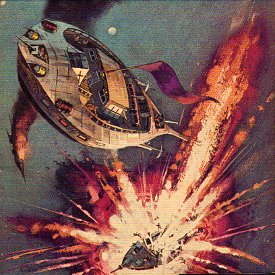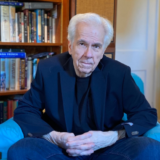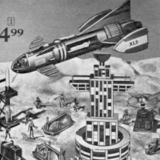
Last week I came across a neologism that I have never heard before called the “Turtledove Effect“. Like alien space bats, it is meant as an insult when a author implausibly inserts people and events from our timeline into an alternate history, such as George Washington being elected president of the United States in a world where the Roman Empire never fell or Islamic terrorists crashing planes into two towers in a timeline where the Chinese discovered the Americas. Essentially, the Turtledove Effect happens when an author takes people and events so far removed from the point of divergence that there is no logical way they could happen as they did in our timeline without smashing every butterfly on the planet.
First off, I want to go on record saying it is unfair to give Harry Turtledove credit for this phenomenon. It is probably because he is the most prolific writer of alternate history, but he is not the first or only author to write these implausibilities into his stories. That being said, the proponents of the Turtledove Effect do have a point. From a certain point of view, it is silly to think that the same people will be born after you change history, since you will have people who will live who should have died, or vice versa, and they could easily bring new life into the world who never existed in the first place. Thus in a world where Napoleon won the Battle of Waterloo, its hard to imagine that the exact same people would conceive the exact same children that would become Prime Minister Margaret Thatcher.
Also with different individual and state actors on the world stage its conceivable that certain events of history either won’t happen at the same time or at all, as the sum of our historical decisions take us on such a divergent path that we are unable to even guess at the long-term implications of our change to history. Now you can argue that in an infinite multiverse it is at least statistically possible that someone with the exact genes and personality could exist even from a completely different history than our present or that some divine interference would make sure certain “great men” will always be born and rise to power, but the multiverse is just a theory and the divine intervention theory is rejected by most historians and mainstream religions (at least the ones who emphasize humanity’s free will).
That all being said, the use of the Turtledove Effect as an attack on implausible alternate histories reflects one of the more frustrating aspects of the genre for writers. In defending his novel, The Years of Rice and Salt, Kim Stanley Robinson said: “the complaints about alternative histories being ‘too much like’ our history are always balanced, sometimes in the same commentator, by complaints that it is ‘too different to be possible,’ and I have concluded that really one can’t win: alternatives to our world history are in some deep sense unthinkable. The alternative history then becomes an exercise in pushing at that limit and always asking ‘why’ to one’s responses concerning ‘plausibility’ or the like.” Robinson makes an interesting point by saying that writing an alternate history is a lose-lose situation for the writer. Either readers will reject the plausibility of your timeline because it is too alien from their history or they will reject its plausibility because it is too similar to the history they already know.
In fact, if you subscribe to a leftist theory of history, then you believe that history is influenced more by intangible forces than the decision of individuals. Thus Europe will always have the Dark Age, Renaissance, Reformation, Enlightenment and World Wars regardless of what nations cover the continent. That means familiar events from our history not only can, but will happen in an alternate history, even if the point of divergence is far in the past. Who is born, however, is not governed by intangible forces. There is no invisible hand making sure there is a Franz Ferdinand who will always be in a Sarajevo at the same time on every parallel Earth. Still, perhaps authors can be given some slack for using historical figures who are born after the initial point of divergence. For example, if you want to comment on an alternate civil rights movement in the Confederate States of America by using an analog of Martin Luther King, Jr., why go through all the trouble of inventing a fictional character and making sure the readers know this is an archetype for King, when you can just call him Martin Luther King, Jr. and be done with it? The audience knows who the character is meant to be without too much trouble and you can move on to the crux of your story.
Although I sympathize with those who use the Turtledove Effect to criticize implausible alternate histories, seeing important people or events from our past in different histories is part of the fun of alternate history, regardless of how implausible it is. Authors should be given more slack and readers should relax and enjoy the story being told, whether it is a Earth completely alien from our own or one that parallels our own history.










I don’t really like the term ‘Turtledove Effect’ used in this way. First, it’s not really an effect. It’s a gripe. I’m personally annoyed by Turtledove’s overuse of adverbs, but I wouldn’t call that an effect. It’s more of a style thing. I think the creator of this ‘effect’ was griping over some annoyance and decided to create a term.
An ‘effect’ happens after the book is published. The book ‘effects’ something else, ie: ‘drives new readers to alternate history in large volumes’. That’s an effect that’s largely original to Turtledove and it can be applied to others in rare cases.
Either Eric Flint–in one of his Assiti Shards books–or someone in the Grantville Gazette, points out that with an historical event that changes history like the Ring of Fire (in 1635 or whatever) would ensure that nobody born in our timeline–or at least in the Western World–would actually be born due to the widening effects of a couple of hundred years of changed timeline.
It’s a good point, but as you say, it can be ignored up to a certain point.